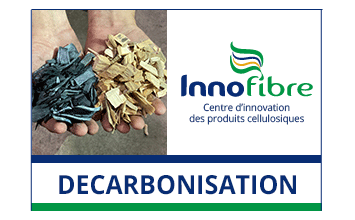In a historic move that promises to transform Maine's forest bioproducts sector, Governor Janet Mills celebrated the announcement by the Biden-Harris Administration, designating Maine's Forest Bioproducts Advanced Manufacturing Tech Hub as a Federal "Tech Hub."
This recognition not only underlines the potential for rapid growth in Maine's forest bioproducts sector but also opens the doors for significant Federal investments in the future, paving the way for innovative solutions in sustainability, climate change, and economic development.
The Maine Technology Institute (MTI) and the Mills Administration submitted the application for this prestigious designation earlier this year. The newly-minted Forest Bioproducts Tech Hub is poised to become a hub for research and development of natural polymers and wood fiber bioproducts, with the potential to sequester carbon and replace plastics and toxic chemicals. This initiative aligns with the "Made in America" supply chain goals and could significantly contribute to the nation's battle against climate change.
The collaborative effort behind this achievement brings together more than 30 leading Maine industries, businesses, innovators, workforce entities, and institutions of higher education. The consortium includes academic powerhouses such as the University of Maine and the Roux Institute, industry leaders like Sappi and IDEXX, as well as other key players like Thornton Tomasetti, FOR/Maine, the AFL-CIO, the Maine Venture Fund, and more.
Maine's designation as a Tech Hub is part of the broader Tech Hubs program created under President Biden's CHIPS and Sciences Act, a bipartisan legislation with strong support from Maine's Congressional Delegation. This program has earmarked historic investments intended to position American workers, communities, and businesses at the forefront of cutting-edge industries.
Governor Janet Mills expressed her excitement over this prestigious designation, stating, "Maine’s forest products sector is a key part of our state’s heritage and a cornerstone of our economic future. This exciting designation signifies to the world that Maine is a global leader in developing and manufacturing climate-friendly, sustainable products that create jobs and strengthen the U.S. supply chain."
Mills also extended her gratitude to the Biden-Harris Administration and Maine's Congressional Delegation for their unwavering support of the CHIPS and Sciences Act, which played a pivotal role in securing this designation.
Heather Johnson, Commissioner of the Maine Department of Economic and Community Development, and Hannah Pingree, Director of the Governor’s Office of Policy Innovation and the Future, emphasized the significance of this achievement in strengthening Maine's industry and its contribution to global climate solutions, asserting, "By investing in promising forest product innovation, this grant will allow our consortium to strengthen a key Maine industry, bolster rural Maine, and advance global climate solutions that will grow our economy."
Brian Whitney, President of the Maine Technology Institute, expressed his gratitude, saying, "MTI is honored to lead this impressive consortium of Maine partners engaged in government, industry, higher education, workforce, and economic development as we embark on this vital effort to further bolster our state’s reputation for manufacturing forest-derived, climate-friendly products."
In tandem with the designation, the U.S. Economic Development Administration announced that the Maine Tech Hub consortium will receive a Tech Hubs Strategy Grant. This grant will facilitate local coordination and planning activities to strengthen the region's capacity to manufacture, commercialize, and deploy critical technologies, marking the next phase of their transformative journey.
This monumental designation positions Maine among the first 31 Tech Hubs to be recognized under the Tech Hubs program. In the near future, the consortium will have the opportunity to apply for the program's next phase, which will invest between $50 to $75 million in each of 5-10 designated hubs.
Maine's selection from a highly competitive process, featuring 198 applications from regional consortia spanning industry, academia, state and local governments, economic development organizations, and labor and workforce partners, underscores the state's pioneering role in the development of forest-derived, climate-friendly products.
With Maine now designated as a Federal Tech Hub, this innovative initiative promises to not only bolster the state's economy but also to lead the nation in creating sustainable, eco-friendly products and solutions that will drive positive change on a global scale. The journey toward a greener, more sustainable future has found a new home in the forests of Maine, where innovation and environmental stewardship will go hand in hand.













